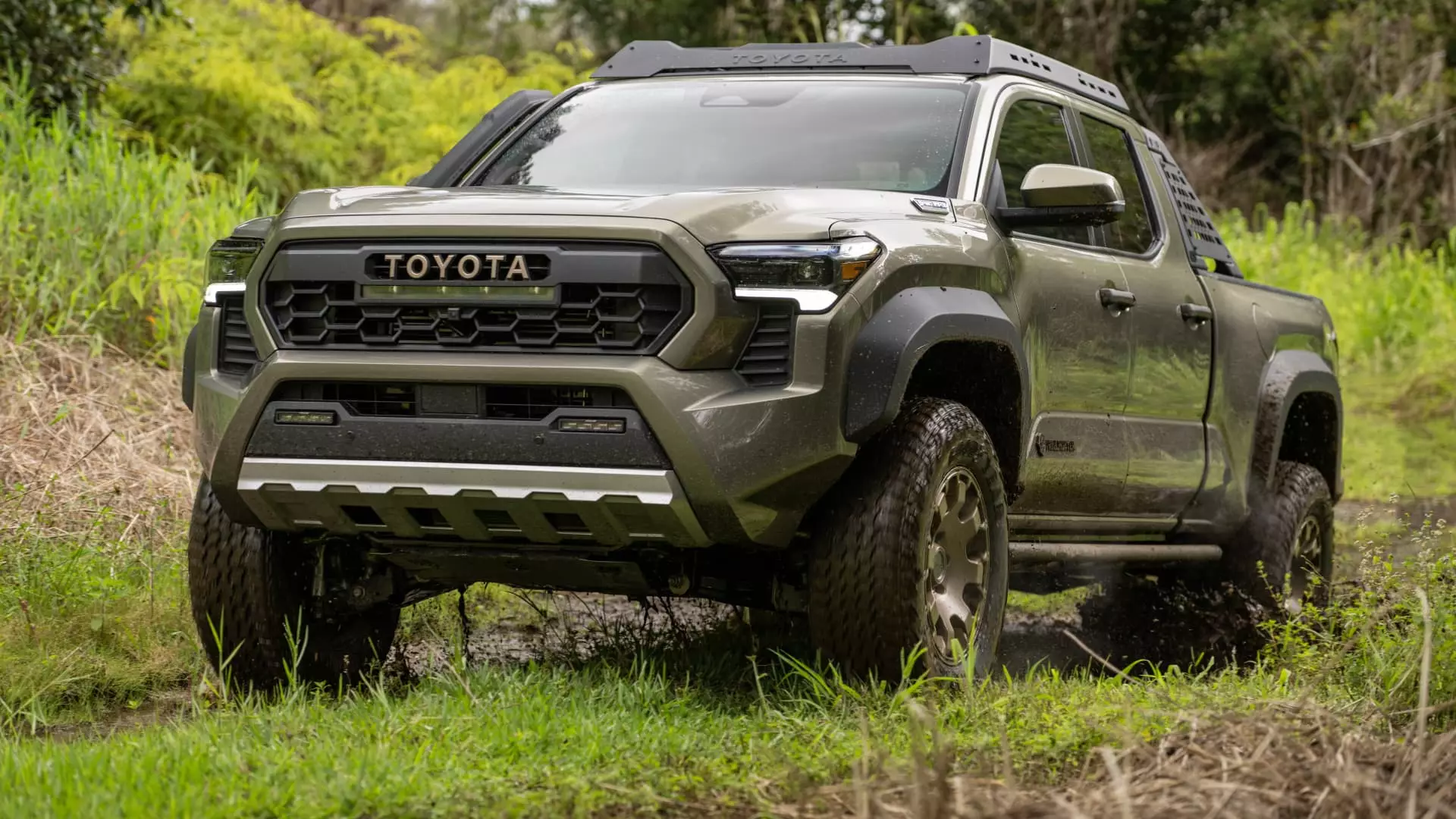Toyota Motor is currently in the process of evaluating the potential expansion of its U.S. truck lineup to include all-electric or plug-in hybrid electric versions of its popular Tacoma and Tundra pickups. This decision is being driven by a combination of anticipated customer demand and the increasing stringency of federal emissions and fuel economy regulations. Jack Hollis, executive vice president of Toyota Motor North America, expressed the company’s interest in broadening its truck portfolio during the New York Auto Forum conference.
While Toyota has previously discussed the introduction of battery-electric vehicles (BEVs), including a midsize pickup similar to the Tacoma, recent discussions have also touched upon the possibility of plug-in hybrid vehicles (PHEVs). The automaker is committed to investing $1.3 billion in a Kentucky plant to manufacture a new all-electric, three-row SUV for the U.S. market. Additionally, Toyota’s Thailand president has confirmed plans to produce a BEV version of its small Hilux pickup for global markets. Hollis expressed admiration for the electric Hilux but refrained from speculating on its U.S. availability, stating that the company is exploring both BEV and PHEV options for the Tacoma and Tundra models.
Evaluation and Considerations
The Tundra pickup was last redesigned in 2022, followed by the Tacoma in the previous year. Toyota is currently in the process of evaluating the viability of both BEV and PHEV variants for these models. Hollis highlighted the advantages of each option and emphasized the importance of determining the optimal mix for each vehicle, including the 4Runner and Sequoia SUVs. This comprehensive evaluation includes factors such as performance, cost, and overall market demand.
Market Landscape
Although there are currently five all-electric pickup trucks available for purchase in the U.S., these models are primarily positioned as luxury vehicles due to their higher price range, which typically exceeds $50,000 and can surpass $100,000. Sales of these vehicles have tapered off after an initial surge in availability. On the other hand, there are currently no plug-in hybrid electric pickups offered in the U.S. market, although Stellantis’ Ram brand is expected to introduce an “extended-range” plug-in vehicle later this year.
Toyota’s exploration of new electric and hybrid truck options reflects a broader trend within the automotive industry. Several automakers, including Hyundai, are reevaluating their product strategies in response to slower-than-expected adoption of electric vehicles (EVs) and evolving regulatory requirements. The Biden administration’s revised emissions rules have prompted manufacturers to reconsider the role of hybrid and plug-in hybrid electric vehicles in their lineup strategies. Hyundai’s president, José Muñoz, emphasized the need for flexibility, indicating that the company is considering different approaches, including the production of all-electric vehicles at a new facility under construction in Georgia.
As the automotive landscape continues to evolve, Toyota’s deliberation on expanding its U.S. truck lineup to include electric and hybrid options underscores the industry’s transition towards more sustainable and efficient transportation solutions. The ultimate decision will hinge on a careful assessment of consumer preferences, regulatory standards, and technological advancements, as automakers navigate an increasingly complex and competitive market.

